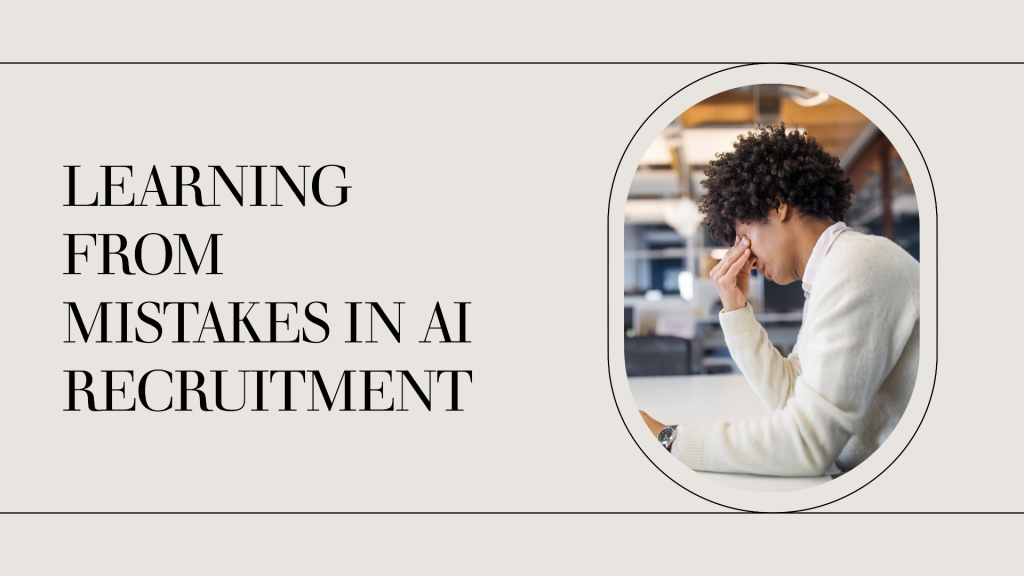
The world of AI-powered recruitment is brimming with possibilities, but like any new technology, it comes with a learning curve. Trial and error are inevitable, but focusing on the “right” mistakes can propel your AI implementation to new heights. Here’s how to leverage those learning experiences for a winning AI recruitment strategy:
1. Data is King (and Queen): Quality Over Quantity
Early on, some organizations might prioritize the sheer volume of data over its quality. While a large dataset is valuable, inaccurate or incomplete data leads to skewed insights and unreliable AI predictions. Focus on gathering clean, accurate data on candidates, roles, and historical hiring outcomes. This ensures AI provides robust and actionable insights that truly optimize your recruitment process.
2. Beyond the Resume: AI Can Uncover Hidden Gems
Traditionally, resumes were the primary source of truth. AI unlocks a different dimension. By analyzing skills, experience, and even social media profiles, AI can identify talented individuals who might have been overlooked by traditional methods. This expands your talent pool and ensures you’re not missing out on hidden gems who may possess the exact skills and cultural fit you need.
3. Human Judgment and AI Insights: A Collaborative Dance
One early misconception was that AI would replace human recruiters. Instead, the ideal scenario is a collaborative dance between AI and human expertise. AI analyzes data, identifies potential candidates, and flags potential red flags. Human recruiters then utilize their experience and intuition to assess cultural fit, soft skills, and leadership potential during interviews. This powerful combination delivers a more holistic and well-rounded hiring process.
4. Transparency is Key: Building Trust with AI
Early AI implementations might have lacked transparency, creating a sense of mystery about how candidates were being evaluated. Building trust is key. Be transparent about how AI is used in your recruitment process. Explain what data sets are analyzed and how AI tools identify top candidates. This fosters trust and understanding with candidates and ensures a positive experience.
5. Continuous Improvement: AI Learns and Grows
AI is not static. Early on, some organizations might have treated AI as a “set it and forget it” solution. Instead, monitor AI performance, analyze results, and gather feedback from HR teams and candidates. Use this information to refine your algorithms and continuously improve the effectiveness of your AI recruitment strategy.
By embracing these learnings, you can ensure that AI becomes a powerful tool for building a strong talent pipeline and attracting the best candidates for your organization. Remember, AI is a partner in your recruitment journey, not a replacement for human expertise. When used strategically, AI can transform your recruitment efforts and help you build a winning team for the future.
Ready to share your experiences with AI in recruitment?


